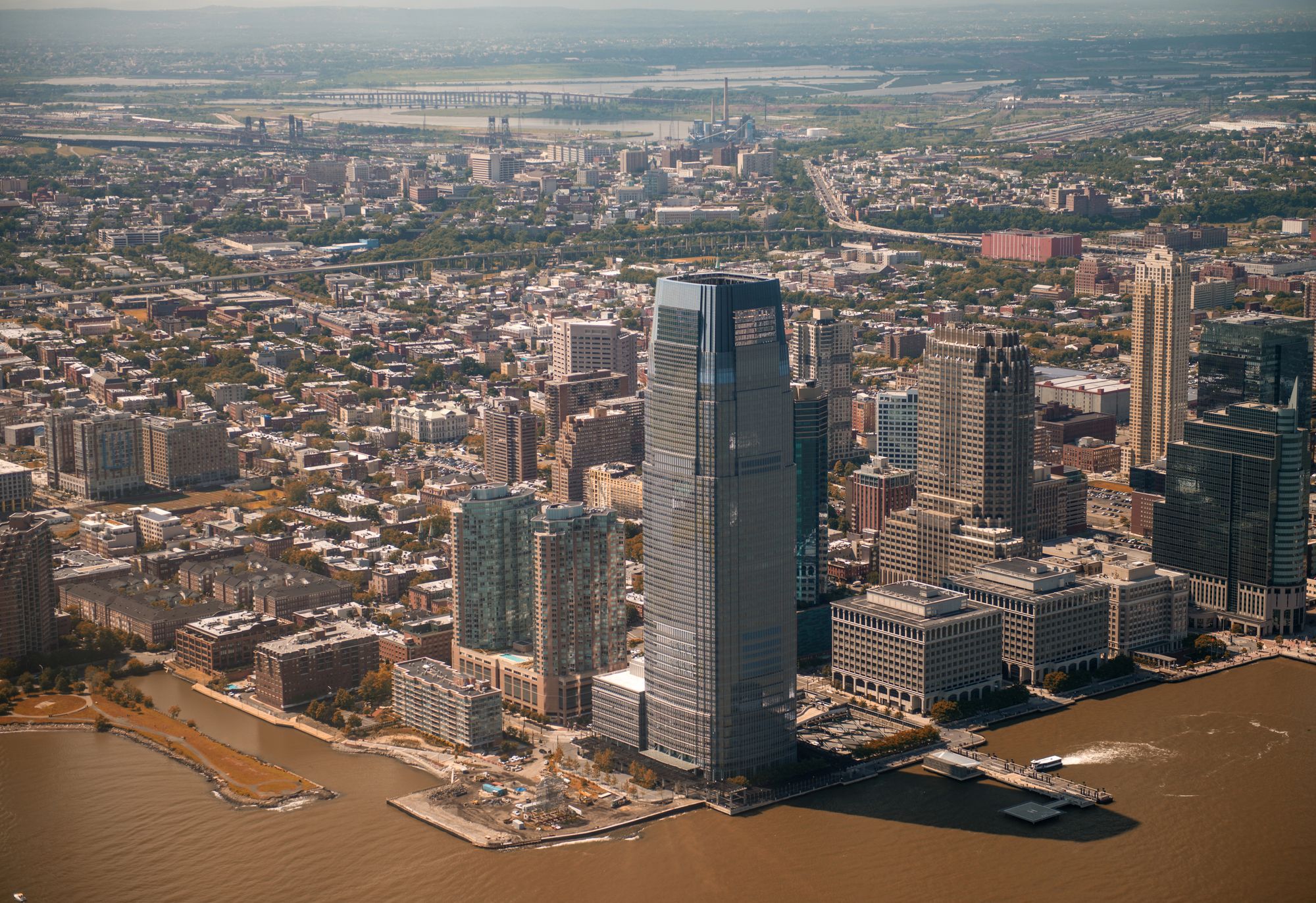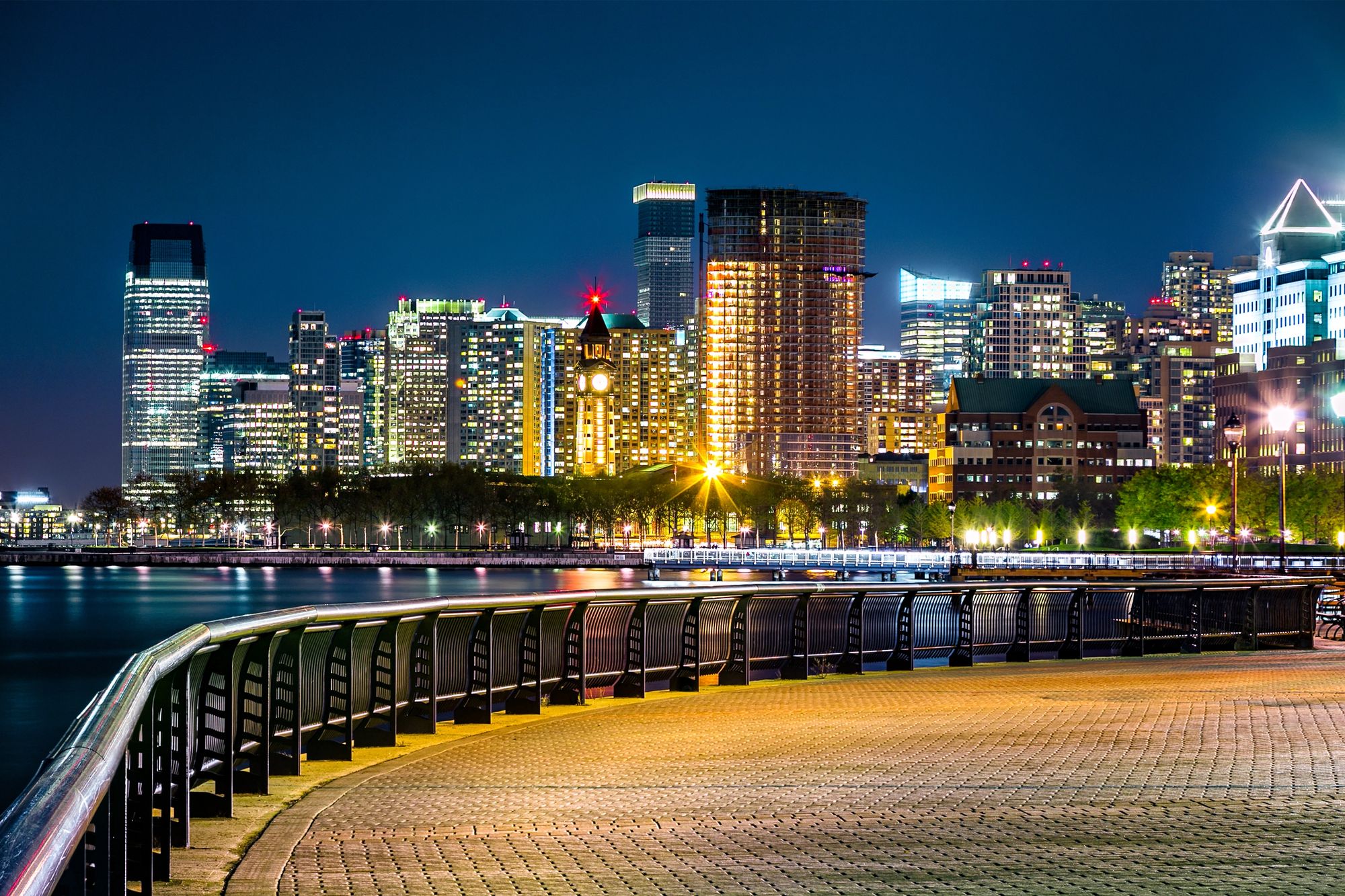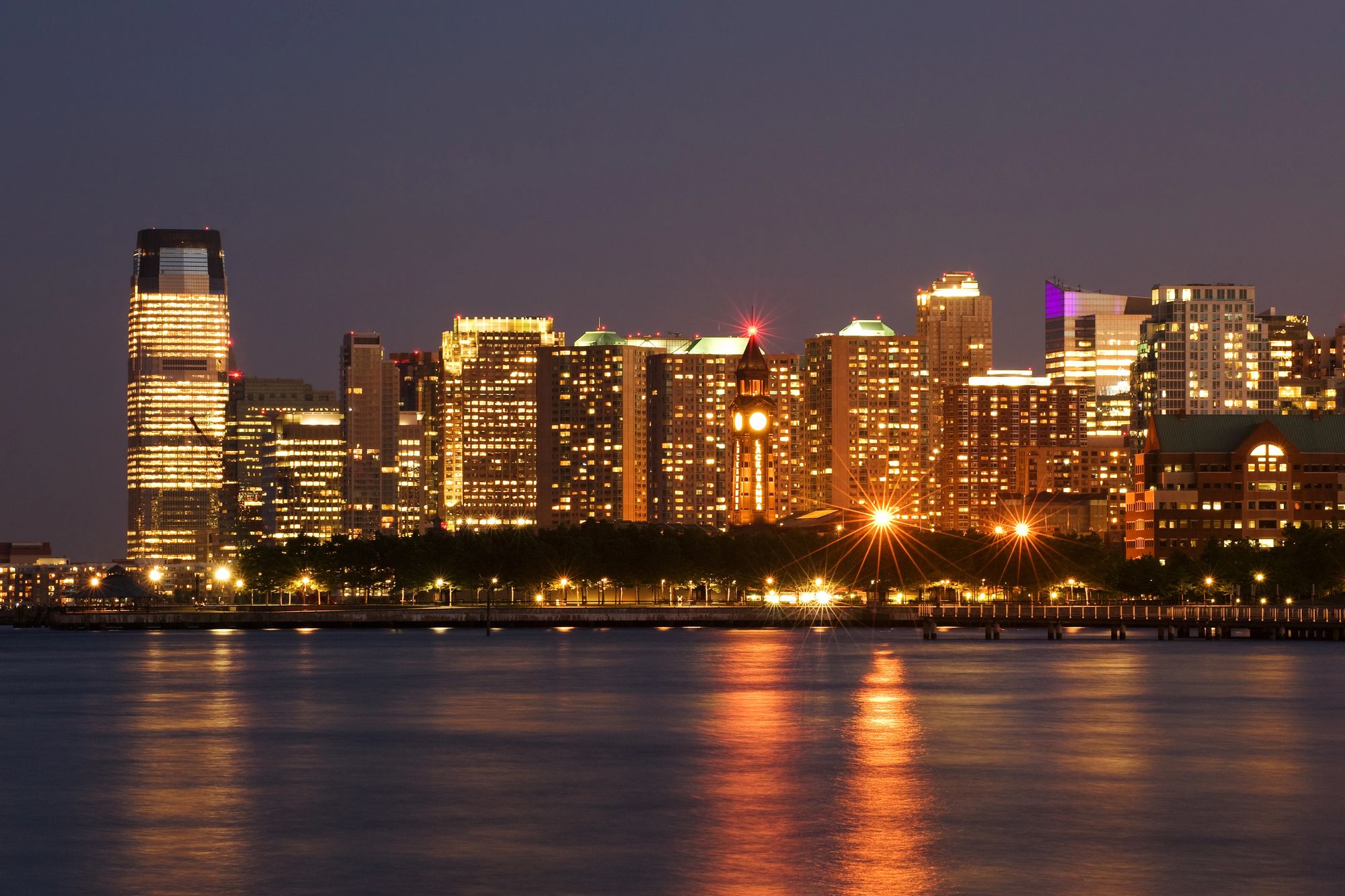Thinking of a move between the big city and its neighbor across the Hudson? One of the biggest factors to consider is your tax situation. Jersey City generally offers significant tax advantages over New York City. By living in Jersey City instead of NYC, you avoid the 3-4% NYC city income tax while also benefiting from New Jersey’s lower state income tax rates for many income brackets.
The tax benefits of Jersey City extend beyond just income tax. When shopping in downtown or Newport areas, you’ll pay only 3.75% sales tax compared to NYC’s combined rate of 8.52%. This means you keep more of your hard-earned money with each purchase, from everyday necessities to luxury items.
Get a discount of 15% to 70% on accommodation in Jersey City! Look for deals here:
Jersey City Hotels, Apartments, B&Bs
Jersey City offers you the perfect compromise – you’re just minutes from Manhattan via PATH train or ferry, but your wallet gets a welcome break from NYC’s tax burden. The city has evolved into a vibrant destination with diverse neighborhoods, excellent restaurants, and stunning waterfront views, all while letting you enjoy a more affordable cost of living than across the river.
Comparative Analysis of Tax Structures
Understanding the tax differences between Jersey City and NYC can significantly impact your financial bottom line. The two locations have distinct approaches to taxation that affect everything from your paycheck to your shopping expenses.
Income Tax Variation Between Jersey City and NYC
The most notable tax advantage of Jersey City over NYC is the absence of the 3% NYC city tax. This immediately provides substantial savings for your household budget.
New Jersey uses a traditional progressive income tax structure that functions like a stepladder, where different income brackets are taxed at increasing rates. New York has a similar progressive system but includes additional wrinkles.
For example, a household with $260,400 taxable income in NJ might pay less than a similar household in NY with $241,374 taxable income due to differences in tax rates, brackets, and calculation methods.
If you work in NYC but live in Jersey City, you’ll still pay New York State taxes on income earned in New York, but you’ll avoid the NYC resident tax. This can lead to thousands in annual savings, especially for higher income earners.
Property and Sales Tax Considerations
Property taxes in Jersey City tend to be higher than in NYC, which partially offsets income tax savings. However, the overall cost of everyday expenses often favors Jersey City.
New Jersey’s statewide sales tax is 6.625%, significantly lower than NYC’s uniform 8.875% sales tax. This means immediate savings on your daily purchases.
Even better, parts of Jersey City fall within designated enterprise zones that offer reduced sales tax rates, making shopping even more affordable.
Other costs like food, parking, and fuel are typically lower in Jersey City than in Manhattan. This creates a compounding effect of savings beyond just tax differences.
Tax Credits and Deductions
Both New Jersey and New York offer various tax credits and deductions, but they differ in ways that might benefit you depending on your situation.
New Jersey provides certain property tax relief programs that can help offset the higher property tax rates. These include homestead benefits and senior freeze programs for eligible residents.
Mortgage interest deductions work similarly in both states for federal taxes, but state treatment may vary. The 2017 tax law changes capped state and local tax (SALT) deductions at $10,000, which affects high-property-tax areas in both states.
For married couples filing jointly, the tax calculation differences between NJ and NY can be significant. Each state has different brackets and rates that might favor certain income levels and family situations.
The commuting costs between Jersey City and NYC should factor into your financial calculations, though at higher income levels, the tax savings typically outweigh these additional expenses.
Implications for Residents and Workers
Deciding between Jersey City and NYC involves weighing significant tax differences that directly impact your take-home pay and overall cost of living. Understanding these implications can help you make an informed decision about where to establish your home base.
Cost of Living and Quality of Life
Living in Jersey City offers substantial tax advantages compared to NYC. By choosing Jersey City, you’ll avoid the NYC city tax of approximately 4% on income, which immediately increases your after-tax income. Additionally, New Jersey state income tax rates are generally lower than New York state rates.
Jersey City’s downtown and Newport areas provide a special benefit: you’ll pay only 3.75% sales tax on in-person purchases, compared to NYC’s higher rates. Food costs tend to be more affordable in Jersey City as well.
Real estate options in Jersey City often give you more space for your money. While New Jersey has higher property taxes, the overall housing costs can be lower than comparable NYC neighborhoods, especially in Manhattan.
Commuting Patterns and Related Expenses
When living in Jersey City and working in NYC, you must factor in commuting costs. The PATH train, ferries, and buses connect Jersey City to Manhattan, with monthly passes ranging from $100-$300 depending on your route and preferred transportation.
These commuting expenses may offset some tax savings, particularly for lower to moderate income earners. However, as your income increases, the tax benefits generally outweigh these additional costs.
Working in New York while living in New Jersey requires filing tax returns in both states. Your employer will withhold New York taxes, but you’ll need to file a New Jersey resident return as well. New Jersey provides credits for taxes paid to New York, helping you avoid double taxation.
Get a discount of 15% to 70% on accommodation in Jersey City! Look for deals here:
Jersey City Hotels, Apartments, B&Bs
The commute from Exchange Place or other Jersey City locations to Manhattan can take as little as 15-20 minutes, often faster than commuting from outer NYC boroughs.




